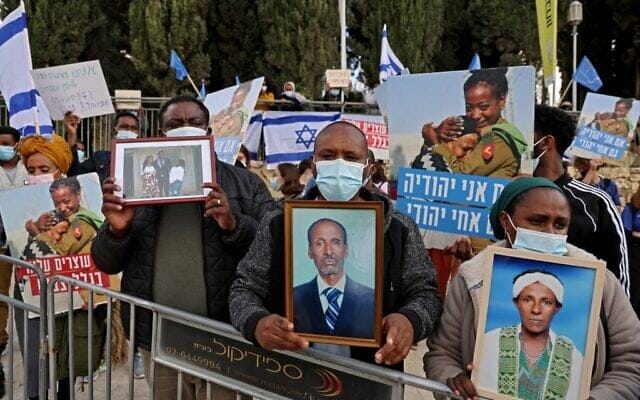During Iran’s recent missile attacks on Jerusalem, several Ethiopian families and women were blocked from entering a public shelter after an extremist ultra-Orthodox (haredi) faction took control of the facility and declared it “men only,” according to local media reports.
Witnesses say that when the families — many of Ethiopian descent — attempted to enter the shelter, members of the group spat on them and forced them back. Police were called to the scene, but their intervention was reportedly brief. After authorities left, the group continued preventing women and families from entering the shelter.
The incident has sparked condemnation and renewed concerns over long-standing discrimination faced by the Ethiopian-Israeli community, particularly during emergencies where equal access to protection becomes a matter of survival.
Though the shelter was a public facility meant for civilian use during attacks, no legal action has yet been taken against those who restricted access. Police have reportedly reached out to local rabbis to discourage such behavior, but critics argue that institutional responses remain insufficient.
Historical Context: Discrimination Against Ethiopian Jews
The Ethiopian Jewish community, also known as Beta Israel or Falasha Jews, was brought to Israel through major state-led immigration efforts in the 1980s and 1990s. While these missions were hailed as national triumphs, many Ethiopian-Israelis have since faced persistent challenges, including racism, underrepresentation, and marginalization within Israeli society.
Numerous studies and reports have documented discriminatory practices in housing, employment, and education. Ethiopian Jews have protested against incidents of police violence and racial profiling, particularly in urban areas. Despite their high rates of military service, they often feel excluded from full civic inclusion.
“The fact that this could happen in a public shelter — in a time of war — shows that we are still not seen as equals,” said a community member who was among those denied entry.
Human rights groups and activists are calling for a full investigation into the incident and are urging the Israeli government to ensure that emergency services remain accessible to all citizens, regardless of ethnicity or gender.



